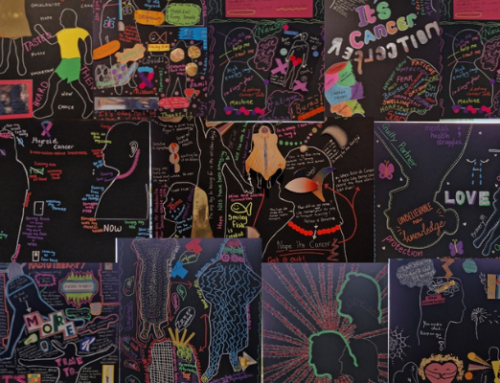
(Image: Prof Chris Tape, Dr Grace Cooksley, Dr Graeme Hewitt, Prof Jane Sosabowski, Dr Claire Roddie, Prof Francesca Ciccarelli)
A huge congratulations to all our Seed and Development Fund awardees, each receiving up to £25,000 to launch innovative pump-priming projects. Here is a insight to some of these projects;
Radiosensitising Rectal Cancer via Stem Cell Transdetermination
Prof Chris Tape’s project aims to enhance radiotherapy effectiveness in rectal cancer by reversing stem cell resistance. Current treatments only fully benefit ~15% of patients. Researchers discovered that colorectal cancer stem cells exist on a spectrum—from sensitive (proCSC) to resistant (revCSC)—and that cancer-associated fibroblasts can drive this shift via PI3K and YAP signalling changes. The project will test whether targeted therapies can reprogram resistant revCSC cells back into sensitive proCSC states. Using patient-derived organoids and advanced single-cell analysis, the team will map treatment-induced changes in stem cell behaviour. This work will uncover patient-specific vulnerabilities and guide future development of stem cell–focused radiosensitisation strategies.
Modelling radiation-resistance in high-grade gliomas
Dr Grace Cooksley’s project looks at radiotherapy resistance, which is the leading cause of mortality in high grade glioma patients. Biopsies of patients post-treatment are rare, hindering our understanding of treatment response and tumour relapse. the project proposes to using our cancer-organoid and microglia co-culture system, to model radiotherapy resistance and to monitor cell behaviour and biology such as microglia’ cellular senescence, potentially contributing to poor treatment response and tumour regrowth.
Develop CRISPRa Screening Platform for Radiotherapy Resistance
Dr Graeme Hewitt and Dr Kasper Fugger will be looking to develop an advanced CRISPR activation (CRISPRa) screening platform. The initiative targets a major challenge in cancer treatment: resistance to ionising radiation (IR). While CRISPR-Cas9 knockout screens have illuminated how gene loss contributes to radio-resistance, this project focuses on gene upregulation—where increased gene activity helps tumors evade therapy. By building a high-throughput CRISPRa pipeline, the team aims to identify genes whose activation drives IR resistance and uncover new, druggable targets. This approach bridges a critical gap in functional genomics and paves the way for more personalized, effective radiotherapy strategies.
To read about our other Seed and Development fund projects click below;
Seed Funding
Development Funding




